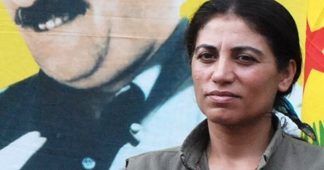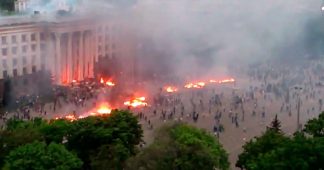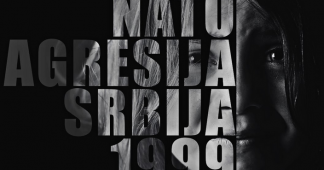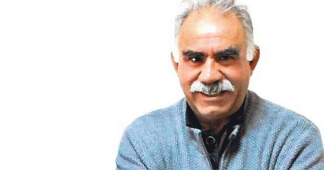Mars 1, 2018
This column has been sitting on the blank screen for a while now. The words started to sound empty, muffled by the sound of explosions, by the noise from the medias, by the strangled anger and the complicit silences. And also, a fear one hardly dares formulate started slipping into the space between the paper and the pencil. Will this film we loved and want to share turn into the testament of an utopia? Or will it be the living memory of a successful experiment?
It begins with the burial of martyrs. An endless ceremony. Then life invites itself back on the scene. And one is carried away by Roza – the country of two rivers, a documentary directed by Kutbettin Cebe in 2016.
Poetic frames, political speeches and the weapons of the struggle join in a dialogue. In the cantons of Kobanê, Cizire and Afrin, the populations are leading an armed combat against ISIS head on along with a political struggle for democratic confederalism. Economic, social and political demands are articulated around a system of autonomous governance based on the commune. In parallel (but, they say, all parallels finish by crossing each other some day), the communities living in this territory work at building a harmonious mosaic of peoples, cultures and religions. Worked into the fabric, martyrs now falling under the fire from the Turkish artillery. Yes, seeing or watching this film again today leaves a bitter feeling and a tightness in the eye.
A documentary to watch while keeping in mind the analyses of Pierre Bance and of Nazan Üstündağ, articles dedicated to democratic confederalism and ongoing political processes in Rojava.
Bearing in mind also that this project now rests on an olive branch and a strong wind is blowing.
You cry, you feel indignant, you let yourself be carried by hope and by the wind of revolt. The wise words of old sheiks and of young activists, the cries of anger from the mothers and the speeches of the spokespersons all say the same thing: “We want nothing other thatn freedom. And we will fight to the death.”
Giving the floor to representatives from all the communities, taking us into the churches, the popular assemblies and the intimacy of homes, the director takes us on a political and committed journey through the recent history of Rojava, to meet the Syriacs, the Kurds and the Arabs who inhabit – as much as they are inhabited by – these mythical lands and their heritage.
You might not make it all the way, were it not for the halts along this road strewn with ambushes. This arid land that has absorbed so much blood, the blurred smiles of the women soldiers, the three colors floating in the wind…: life, despite all the threats, following the course of the two rivers.
Just as rivers deal with twists and turns, dry spells and floods, with the certainty of reaching the sea some day, these men and women, like drops of most organized water, doggedly attempt to divert the course of the river of history.
First film produced by Komîna Fîlm in Rojava, the Rojava Film Commune, Roza is an emblematic documentary of cinematography in a territory plunged in war.
Excerpt from their charter: “We will not allow cinema to be reduced to an industrial tool or a consumer object to be discarded. Our village meeting places will become our cultural and art centers. Our animated streets will be our films, together.”
* Kutbettin Cebe: Born in 1988. He studied at the Faculty of Communications (ILEF) at Ankara University. Roza – the country of two rivers is his first documentary
He also directed two short films, Denk, the story of two cities in 2012, and in 2012, Jin û Jîn on violence against women.











